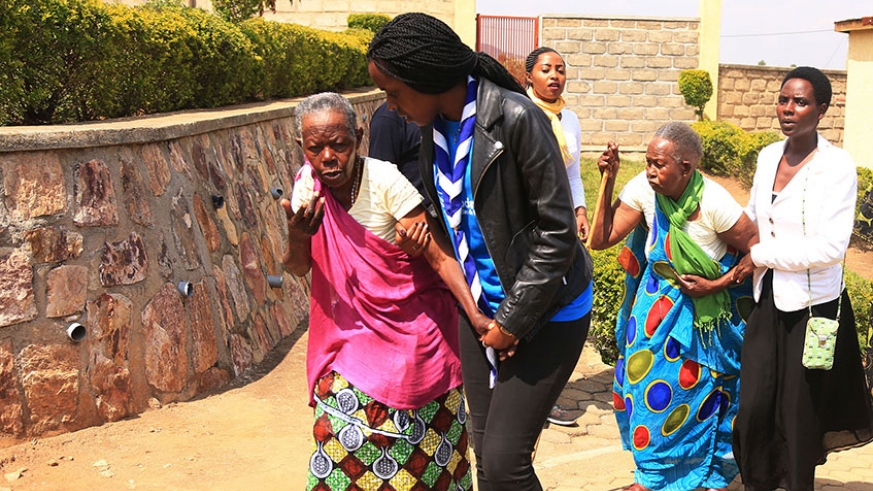
The New Times, July 2019
Government, through the Fund for support for Genocide survivors (FARG), has approved the plan to increase a monthly living allowances for vulnerable survivors of the 1994 Genocide against the Tutsi.
The monthly stipend is set to increase from Rwf7, 500 to Rwf12, 500 as the minimum allowance per beneficiary, according to officials at the Fund.
The Director General of FARG, Theophile Ruberangeyo, told The New Times in an interview last week that the initial plan to double the amount had been hindered by lack of enough funds.
Ruberangeyo said that the Rfw7,500 was established based on the Vision 2020 Umurenge Programme VUP which gives the same amount as the least and Rwf21, 000 as the highest.
“We will continue lobbying that the money is increased but this is a step in the right direction because there had not been an increase in seven years. We based on VUP standards to come to the sum but while the VUP support goes to a family, FARG monies go to individuals. So whether you are two or ten in one household, each of you gets their own money,” he explained.
A total of 25,600 people are expected to benefit from this.
Special categories
Ruberangeyo explained that besides the number of beneficiaries mentioned above, FARG also supports slightly over 600 people who get special direct support due to the nature of their vulnerabilities.
“These ones fall in one of our two special categories of highly vulnerable people. They are constantly sick and need around the clock support in everything. We provide them with everything from medical care to food. The amount of money that goes to them is unspecified because it is needs-based,” he said.
The other category of vulnerable people is of the elderly who are not yet in retirement homes.
“These are the parents who lost everyone. They are however not yet old enough to be settled in the communal retirement homes. They get between Rfw30,000 Rfw100, 000 depending on their needs,” he explained. In this category alone, there are 1,647 people.
Financial constraints
Since its establishment 20 years ago, the Government has injected over Rwf 267 billion into FARG’s five programmes; health, social protection, shelter, education, and income-generating activities.
Education and health took the lion’s share, consuming a third of the total amount.
“We have managed to educate over 100,000 young Genocide survivors who completed secondary education while over 33,000 students completed university”, he said.
Appearing before the parliamentary standing committee on national budget and patrimony in May, officials from the Ministry of Local Government and affiliated institutions told the lawmakers that the survivors’ fund needed at least Rwf30 billion for construction or renovation of some 2000 houses of vulnerable survivors.
The fund’s total budget for the 2019/2020 fiscal year is Rwf32.4bn. Of this, Rwf11 billion is earmarked for shelter while Rwf3bn goes to direct support takes.
According to the State Minister for Social Affairs, Dr Alvera Mukabaramba, the cost of one housing unit has increased fourfold, from Rwf4 million in 1998 to Rwf12 million currently.
“This means that 2,000 houses could cost about Rwf25 billion and if the number of the required houses is more, which is likely to be the case if the information we are getting from districts is anything to go by, the total sum could go up to over Rwf30 billion,” she said.
She explained that the high cost of housing is in part caused by additional requirements, including household furniture, rainwater harvesting tanks, and cows for the vulnerable survivors whose costs had initially not been factored in.
The Director of Planning, Monitoring and Evaluation at FARG; Emmanuel Munyangondo said that the Fund has over the years constructed 28,558 housing units and rehabilitated 4,714 others.
Ibuka speaks out
Speaking to The New Times on Monday, Naphtal Ahishakiye, the Executive Secretary of Ibuka, the umbrella body for Genocide survivors’ associations, said that this is a good move, especially because this is the first time that they have increased the stipends.
“Based on the prices of commodities on the market today as compared to when this money started being disbursed, you can tell that obviously that the money was little. This increase is a good step even as we all know that there is still not so much that Rwf 12,500 can do,” he said.
He added that this gives them hope that the Government is open to further increases in the future.
